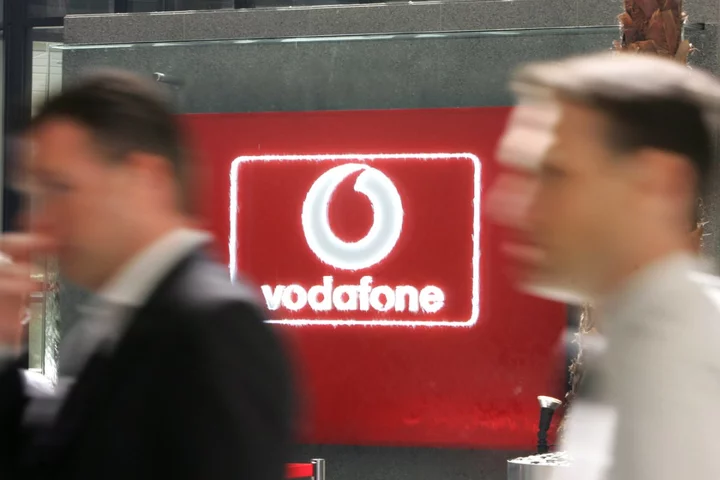
Battle of the Boyne: Why is it in the iPhone calendar and what is it?
The Battle of the Boyne has arrived – a moment greeted with incredible significance by some people in the UK, and confusion by others. The event is a public holiday in Northern Ireland and marks one of the most controversial and important parts of British history. And it is marked by a message in people's iPhone calendar, which has the tendency to confuse some people who see it. For people in Northern Ireland, that fact is obvious: they have the day off, and the controversial celebrations are hard to miss. But for the rest of the UK, the only reminder might be a cryptic note inside their iPhone calendar. What is the Battle of the Boyne? Historically, the name refers to the 1690 event where the Catholic King James II's troops were defeated by the Protestant William III. Nowadays, it is an annual bank holiday that commemorates the same battle. The original battle was of incredible significance not only to the history of Ireland but across Europe. It brought about the conclusion of a fight for the throne in England and is a key part of the ascendency of Protestants in Ireland. Now each year, the holiday takes place on 12 July, an event known as "The Twelfth". It is commemorated by the Protestant community, and it is often marked by confrontations in Northern Ireland. Why is it in my iPhone? The iPhone keeps a full log off all the public or bank holidays in the UK, or wherever else your phone happens to be. That can be very useful because Except sometimes it will throw up strange examples, such as the Battle of the Boyne. The reminder might be very useful for people in Northern Ireland – but for the rest of the UK, where people don't have the day off, it probably mostly useless. That's because the calendar counts every holiday in the UK, even if it does not apply to you. The different parts of the UK have different holidays, and each of them show up in the calendar. It doesn't just include the Battle of the Boyne. The calendar will also show all of the Scottish bank holidays – such as the extra day off at New Year, and the different summer bank holiday – as well as St Patrick's Day, for which people in Northern Ireland are given a holiday too. How do I get rid of it? In short, you can't. The calendar isn't really yours, but is created by Apple, meaning that you can't change it either. You can get rid of the calendar entirely – that is done by clicking the "Calendars" button at the bottom of the screen and deleting or hiding the UK bank holidays one – but that will mean you'll also lose the entire calendar along with it. You could of course recreate the functionality by adding the dates yourself, but that is difficult since some bank holidays tend to move around depending on how days line up. You can add and subscribe to custom calendars on your iPhone, using links that can be found on the internet. The trouble is that all of the examples for bank holidays – such as the one provided by the UK government – also include the Battle of the Boyne. You can make the event slightly less irritating, by turning off any alarms that are associated with it. That is done by clicking on the event on your iPhone and pressing the "alert" button, where you can choose "none". But either the event stays, or you lose all the other bank holidays. Read More New iPhone software stops hackers getting into handsets through USB Why the Battle of the Boyne has made its way into your iPhone Twitter gets strange endorsement from Taliban over rival Threads Instagram Threads hits 100 million users
2023-07-11 17:55

Former Tory leader warns Vodafone and Three merger poses ‘dangerous’ security risk
Former Tory leader Sir Iain Duncan Smith has warned the merger between Vodafone and Three is “dangerous” and risks giving a company with its roots in Communist Party-ruled China a more prominent place in the UK’s mobile network. The former work and pensions secretary and MP for Chingford and Woodford Green said the proposed deal raised serious questions about national security and competition within the UK telecommunications market. Vodafone and Three, both of which have millions of customers in the UK and Ireland, announced earlier this month that they were joining forces in a multibillion-pound deal they said would create one of Europe’s biggest 5G networks. “This is a dangerous deal, which it seems is yet another example of how the Communist Party is trying to create a Western dependency on China,” Sir Iain told The Independent. “Not only does it raise important questions about competition, but it poses risks to our communication networks and personal data.” Three is owned by CK Hutchison, a Hong Kong-listed conglomerate that has been accused of supporting repression in the former British territory, where thousands of residents fled after China’s implementation of a sweeping national security law used by authorities to crack down on dissent against the regime in Beijing. Sir Iain is among a number of cross-party MPs to raise concerns about the growing influence of China in the West, and in particular, telecoms companies who have their headquarters there and are operating in the UK. “The government still doesn’t seem to understand that Chinese companies can be mandated to hand over their data to Beijing at the drop of a hat,” Sir Iain said. “We should be really worried about that. I also think we need to be taking a closer look at who owns these companies, the links between them and the Chinese government and the origins of the money flowing through them.” Last autumn the government announced that Shenzen-based Huawei technology must be removed from the UK’s 5G public networks by the end of 2027, It followed advice from the National Cyber Security Centre and pressure from Washington, which banned equipment made by the company because it posed an “unacceptable risk” to US national security. In March, prime minister Rishi Sunak warned that China plans to “reshape the world” in plans that posed an era-defining challenge for the UK and its allies in the West but dismissed calls for Beijing to be categorised as a threat, something his predecessor Liz Truss pushed for. The union Unite, which has 1.4 million members, is also campaigning against the merger, which some analysts say could result in job losses and higher prices for consumers who are already being squeezed by the cost of living crisis. The deal has triggered an initial investigation by the Competition and Markets Authority and will be subject to approval under the new National Security and Investment Act. Gail Cartmail, Unite’s executive head of operations, said: “Instead of idly watching the CK Group cream profits from UK businesses, the government should ask if they are a suitable custodian of British assets.” Charlotte Nichols, the Labour MP for Wigan North who sits on the Department for Business and Trade sub-committee on national security, said: “Unite the Union has shared research with me that shows this merger would leave sensitive government contracts and the data of millions of UK consumers in the hands of Three, a company whose key leadership have supported repression in Hong Kong and worked hand-in-hand with the Chinese state for decades. “This will be dangerous deal for the UK and I fully support Unite’s campaign against it.” Other MPs – both Labour and Conservative – have tabled questions to government departments asking what security assessments ministers have made of the proposed merger deal. Both Three and Vodafone refused to comment but have previously dismissed concerns about security, saying that they work closely with security bureaus in what is a regulated industry. The Cabinet Office has said it welcomes foreign trade and investment “where it supports growth and jobs in the UK, meets our stringent legal and regulatory requirements, and does not compromise our national security. “However, we will not hesitate to use our powers to protect national security where we identify concerns.” Read More Vodafone and Three to merge in multibillion-pound deal Vodafone and Three merger: What the huge deal actually means for you Cleverly defends China visit plans and pledges to use UK’s global ‘influence’ Three and Vodafone are merging. Here’s what that means for your phone No one wants to take responsibility for No 10 ‘groper’ complaints, warns accuser Top Tories urge Rishi Sunak to use cabinet reshuffle to get a grip on warring party
2023-07-02 15:19
